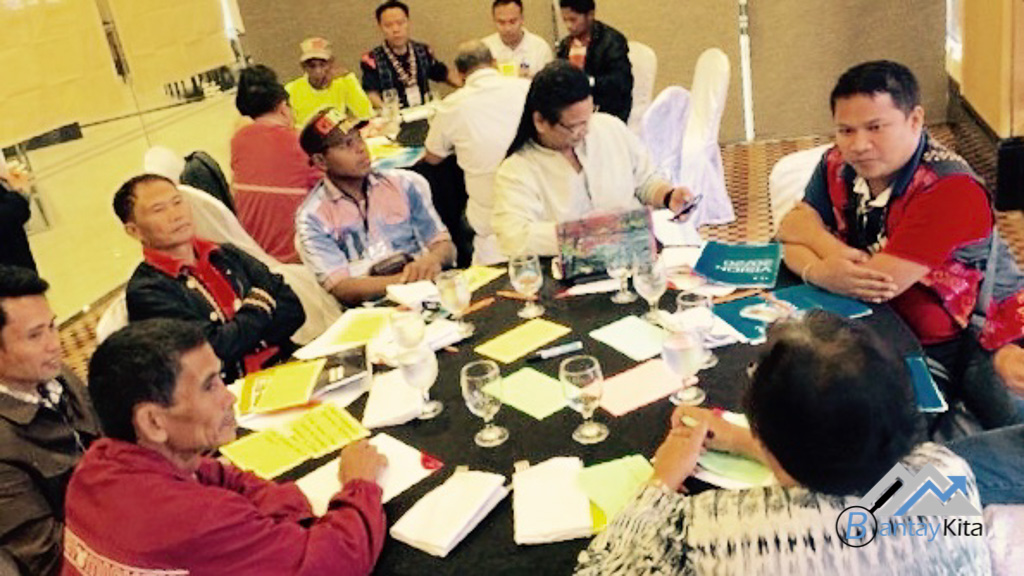BK-PWYP Philippines hosts first National IP Seminar Workshop on Mining and Community Development10/8/2015 National Indigenous Peoples (IPs) Seminar-Workshop on Mining and Community Development was held on October 8, 2015 at the Holiday Inn Manila Galleria Ortigas Center Pasig City. The Seminar –Workshop aimed to discuss BK-PWYP Philippines transparency and accountability initiatives; provide IPs a space for reflection on the social and economic impact of mining on their community; and offer a venue to identify concrete measures that can contribute to maximizing benefits derived from mining activities.
Target participants of the Seminar –Workshop were Indigenous Peoples (IPs) who have signed Agreements with mining companies. Thirty four (34) were present at the workshop. Nineteen (19) IP representatives were in attendance. The day-long activity consisted of two parts: the plenary sessions, which provided the background and context behind the advocacy of Bantay Kita-Publish What You Pay Philippines, and the break-out workshops, which gave participants the opportunity to reflect on their own situation on the ground based on the context and eventually share their experiences and insights. BK-PWYP Philippines’’ Allan Barnacha opened the day by identifying the activity’s objectives, as well as the overall rationale, including levelling the playing field when it comes to IPs’ demands on the negotiating table. Tina Pimentel, also from BK-PWYP Philippines, shared the organization profile and emphasized the fundamental rights of IP groups to develop and benefit from the natural resources in their Ancestral Domains. Melvin Lamanilao then explained the PWYP Value-Chain Framework, including the legal and governance complexities involved in the entry of mining firms in Ancestral Domains. He disabused common perceptions about the process, foremost the forfeiture of IPs’ rights to the land once a MOA with a mining company is signed and that IPs do not “invest” anything in such deals. He stressed that such negotiations should be akin to how business transactions are reached—equitable and transparent—and not lopsided as in the case of aid assistance. The role of IPs should therefore not end with the signing of a MOA, but with the capacity to verify and demand for a their fair share. The workshop sessions yielded invaluable information and insights that could only come from first-hand exposure to the realities on the ground. Aside from key findings, anecdotal evidence were also given in the areas of environment, employment, human development, security, living conditions, infrastructure, and culture and traditions. While there were peculiarities among sites, there were also commonalities, such as destruction of habitat, precarious (contractual) employment, conflict in security arrangements, and potentially misleading and dubious “improvements” in living conditions (access to water in individual houses [positive] but now they have to pay for it whereas it used to be free [negative]). In conclusion, the body identified a potential direction moving forward: a national coalition of IP groups that can leverage their numbers to better negotiate with and seek demands from mining companies and the government.
0 Comments
Leave a Reply. |
Previous Posts
May 2024
Topics
All
|
What We Do |
Know More |
About Us |
Contact Us
[email protected] | +(63) 917 5105 879 1402 West Trade Building, West Avenue, Brgy. Phil-Am, Quezon City, Philippines |

